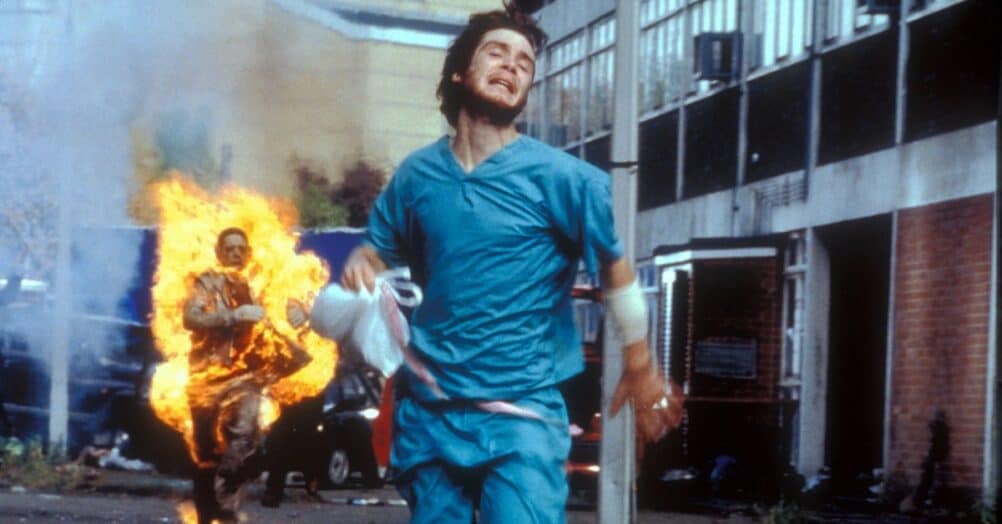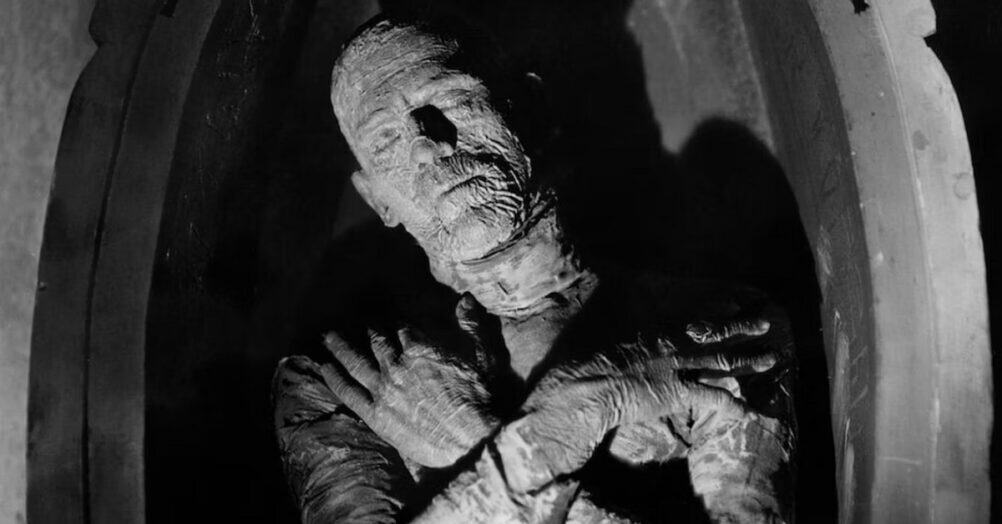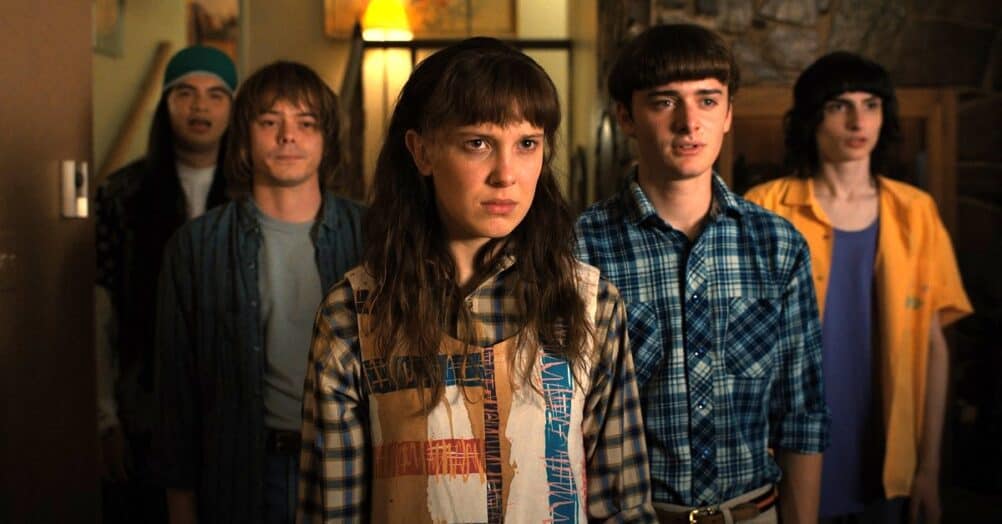The episode of WTF Happened to This Horror Movie? covering Summer of Sam was Written by Mike Holtz, Narrated by Tyler Nichols, Edited by Victoria Verduzco, Produced by Andrew Hatfield and John Fallon, and Executive Produced by Berge Garabedian.
These days it’s commonplace for True Crime stories to fill the corners of any entertainment outlet. Whether it’s film, TV, or podcasts. Hell, we probably wouldn’t bat an eye were we standing in a McDonald’s at 9 AM on Easter Sunday and heard the grizzly story of a banker sticking his ex-wife and her chihuahua into a wood chipper coming at us from the TV in the corner. We’re pretty desensitized when it comes to using the tragedies of other human beings as entertainment. I’m not judging you, Peter. I’m just as culpable. But in 1999, when Spike Lee set out to direct a film about serial killer David Berkowitz, the world wasn’t so at peace with this part of ourselves. Not when they initially heard the idea, and still not later on when they found out Summer of Sam (watch it HERE) would actually be about New York City as a whole in the mid-1970s. The heat waves, blackouts, Reggie Jackson, the New York Yankees, a guy named Vinny who was seriously horny, and his goofy friends… This is the story of that story, and how making it resulted in Spike Lee, with a frightened family at home, telling an interviewer on a popular television program that the editor of the New York Daily News deserved to get hit with a baseball bat. This is what the f*ck happened to Summer of Sam.
It all started when, in Spike Lee’s own words, “I could not find a job that summer. So I just ran around with a Super 8 camera. Just documenting stuff. So, when this script was brought to me. I said ‘I love this script’. At first, I wanted Michael (Imperioli) to direct it, I was going to executive produce. Could not get it set up. I did a rewrite. Two or three years later, took it to (Producer) Joe Roth. I recently did ‘He Got Game’ for him. He said ‘Fine let’s make the film’”
The script brought to him was by none other than Christopher Moltisanti himself, Michael Imperioli of Sopranos fame, along with Victor Colicchio, who would later work with Lee again on Denzel Washington’s Inside Man. The script ended up as a loosely based true story of a group of friends living in the Italian-American neighborhoods of the Bronx as the evil of the “Son of Sam” killer loomed over the group and the city as a whole.
Between 1976 and 1977, David Berkowitz killed six people and injured seven more, causing panic in the city as law enforcement seemed unable to stop him and with the media heavily covering the killings. He would walk up to people usually in their cars and fire at them multiple times with a .44 Caliber handgun, leaving him with the moniker of, at the time, “the .44 Caliber killer”. Eventually, Berkowitz would leave a note behind on the scene for the police and the media that would read something like a Longlegs cosplayer would conjure. Some of which is featured word for word in the film as well as another letter that was sent to Journalist Jimmy Breslin who bookends Summer of Sam with cameos. Later, when caught, Berkowitz tried to plead insanity by saying a neighbor’s dog told him to kill those people. He would eventually admit this was a con to try and fool the courts. Berkowitz is thankfully still in prison today, claiming to be a changed man and evangelical Christian, even calling himself the son of “hope”. Now, if you’ll excuse me I have to throw up in my own shoes.
Though Berkowitz looms and is the most visceral plotline of the film, it is one of many. This plot is stuffed like a pre-inflation Chipotle burrito.

The main character, Vinny, is a hairdresser who habitually cheats on his wife and has a serious complex about sex, marriage, and religion. John Leguizamo would put together a great performance in the role that he said was very hard to do, with a lot of the scenes being very disturbing. And he’s not even talking about the murders but rather the spiral his character goes down with his wife and friends. He would say himself, “It was an emotionally difficult movie for me to go through.” Leguizamo, forever an underrated actor, impressed in the role that at least one group didn’t want him to have…. Spike Lee would recount, “There was some undercurrent from some of the people involved in the project that John Leguizamo was wrong for the part because he did not have the blood. But I felt that he’s such a great actor….Al Pacino wasn’t Cuban.” referencing Al Pacino’s portrayal of Tony Montana in Scarface.
Leguizamo would confirm in an interview that his character was based on a real person, as was the character of Richie, loosely based on writer Victor Colicchio’s life during the time. Richie would be played by Oscar winner Adrien Brody in one of the many fascinating, ballsy choices of the actor’s career. Richie is a guy who has become enamored with the punk rock culture of the time, even changing his accent to sound as if he’s from the UK and sporting a dog chain around his neck amongst various vibrant punk rock hairstyles. One of which was a gigantic blonde mohawk that Brody had done for real. Brody would walk around at the time and gauge passersby’s reactions to him as a bit of research for his character in Summer of Sam, saying “I mean there was a metamorphosis when I did that. It was shocking and I felt crazy.” he would go on, “I actually left it on purpose to kind of stay within that frame of mind, and also see how people act toward somebody who looked different. Which is what my character was going through so much in the film. And you know, people step aside and people call you names and are saying things. Derogatory things. “
Richie’s character goes on a wild ride in the film and eventually starts a punk band of his own. Summer of Sam had a punk rock energy to the film in its very own “don’t give a f*ck” way and featured a time capsule of a moment in punk rock history with the original CBGB location taking center stage, with shots of actual Lower Manhattan punk band L.E.S (Lower East Side) Stitches performing in the movie. Spike Lee also mentioned in the Blu-ray commentary that the film was the first time The Who ever allowed anyone to use “Baba O’Riley” in a film before after he wrote them a letter. One of the small subplots of Summer of Sam’s many subplots is the rise of punk culture at the time and the “normal folks” angry reaction to it. This, along with Richie’s propensity for making porn with his girlfriend, and doing artsy male stripping at a local gay club, led to his former friends believing Richie was the .44 Caliber killer and event the leader of a Satanic cult. This gives the film a Satanic Panic! Edge as well.
Originally, Richie was supposed to be the main character of the story but Spike Lee became enamored with Leguizamo’s ability to improvise and ended up giving his character the bulk of the screen time. Some of these moments include Vinny dumping a cup of coffee on his boss’s head or an argument in the cemetery where Lee told Leguizamo to spit on fellow actress Mira Sorvino without her knowledge. Of this moment, Sorvino said, “I didn’t know he had said this. But because we trusted each other, when he spit in my face, I slapped him in his face. Then we went on with the scene and I jump out of the car, screaming in this cemetery. None of that was in the script. It just happened, and it was all caught, and it was all in the movie. And I love working that way.” In a film that’s loaded with a great ensemble cast, both Leguizamo, Brody, and Sorvino, shine in the roles that weren’t easy to play.
Speaking of Mira Sorvino, the Replacement Killers actress was involved with the project very early on and even did screentests with Benicio Del Toro, who was at one point attached as a lead in the film as the character of Vinnie, along with Leonardo DiCaprio, attached as the Richie character. Sorvino had originally signed on to play the character of Ruby but ended up playing Vinny’s tortured wife Dionna. The role had her going from a loving and loyal wife who loved to dance, to a woman dragged through the mud trying to please her cheating husband. One scene, in particular, had Sorvino and Leguizamo’s characters participating in an orgy that had left her crying in the corner, thinking “I did not become an actress to do this”. She went on to praise the experience of working with Spike Lee overall but found this particular scene to be “demoralizing” to film.

The character Sorvino was originally supposed to play had been Richie’s partner in crime, Ruby, whose role ended up going to the fun-loving Jennifer Esposito. In a role attached to Sarah Michelle Gellar at one point, Esposito gave the performance of a woman full of life whilst being surrounded by sadness and death. She even did an entire song on stage with her and Brody reciting ‘Summer of Sam’ letter lines as lyrics in their punk band ‘Late-Term Abortion’ at CBGB’s.
The crew around them acting like the mob members from Haddonfield in Halloween IV when Michael Myers was on the loose, included Michael Rispoli (who played Jackie in The Sopranos) and Saverio Guerra. The two were on their own witch hunt and ended up trying to round up Richie so they could take him to their boss Luigi, who happens to be the late Ben Gazzara, or as you may remember him, the main bad guy from Road House as well as his many other roles throughout his lifetime. Michael Imperioli did have a small part in the film as a fiery gay strip club frontman, but he too was originally slated to play Adrien Brody’s Richie character before the scheduling with the Sopranos had him change course. Even the hopeless detectives on the Summer of Sam case were actors of note with the always commanding presence of Final Destination’s Roger Guenveur Smith. And a man who always makes you wish you could see more of, who just oozes hapless charisma, Joe from Empire Records, Anthony LaPaglia.
Summer of Sam takes this impressive cast that’s willing to go to the wall with their performances and paints an extremely rugged picture of a rough life for our characters. There are good moments for these people that include love, dancing, partying, and laughing. But mostly they are surrounded by the garbage, poverty, and paranoia of the city as the sun bakes them in a melting pot of despair you can smell through the screen. Everyone seems entertained and caught up in the madness of their lives, but no one seems to be happy or feel alright with themselves deep down. Yet most of these characters have a depth to them where you can see their joy for life buried somewhere in them, afraid to come to the forefront almost as if it’d get mugged from them in the street were they to show it.
Everyone has a fascinating side to them. Even if at some point I wanted to tap Spike Lee on the shoulder and just ask “Exactly how many times do we have to watch Vinny have sex before we get the point?”. I’m in no way offended by it but at two hours and twenty-two minutes, one starts to wonder how much of this is truly necessary. I mean this thing is an omnibus of Vinny f*cking. But even those moments brought forth some hilariously deranged Quentin Tarantino-esque script moments such as Vinny explaining to Richie with conviction that he cheats because God doesn’t want men doing dirty things with their wives.
It’s a strange film. While everything we’re watching feels like it has a personal depth that’s going to lead somewhere profound, the film ends with the killer being unceremoniously captured, Dionna finally telling Vinny to get lost, and our group of idiots trying to pin the killings on Richie for being a weirdo before realizing Berkowitz was already in police custody and announced as the killer. It’s a scene that is tense and actually ended up with Adrien Brody having his nose broken in real life….but as the destination at the end of this long and winding road? It left some audience members wondering the point of it all.

As the marketing for Summer of Sam ramped up, so did the criticism of Spike Lee for making it. The New York Times even interviewed Berkowitz, asking how he felt about the film. Which, understandably sparked a fury in Lee who said he wanted to “do a film that’s not disrespectful or at the same time did not glorify and glamorize David Berkowitz. Which the New York Times did.” and later explained, “They made me switch places. I was the serial killer and he was the sympathetic character. And on top of that. The asshole writer. Of course, I said the word ASSHOLE. He included a paragraph that named my wife and my two children. And the editor? Whoever edited that should be hit in the head with a baseball bat for allowing that to stay in the article. There’s no reason in the world where they had to include that sentence where this mass murderer talks about my children.”
Lee wasn’t done there, also questioning, “I’m the one who is taking advantage of this?? The post and the daily news doubled their circulation. The post has started a whole week series called the Summer of Sam. It’s going through the rest of the week until the movie opens Friday.” Lee was even called racist for the film’s alleged Latin American stereotypes, to which he responded “What their trying to do is undermine the film. Simple as that”, and that “people are smart and they are going to see this stuff as BS. They are going to go see the film and make up their own minds.”
After an agreement with the dreaded MPAA, two minutes of the film were cut out (mostly from the orgy scene), to avoid an NC-17 rating. The film proudly wore an R rating on its chest that included many, many sex scenes. Seriously, if you want to see John Leguizamo in a sex scene… this is your Superbowl. But also, Summer of Sam features the word “fuck” an impressive 435 times. I don’t know who sat down and counted that…but damn. Get a job.
Summer of Sam premiered at the Cannes Film Festival in 1999, released wide less than two months later to the tune of almost $6 million domestically on its opening weekend. Summer of Sam ended its run with a domestic gross of just over $19 million. The budget was $22 million.
As of today, Summer of Sam sits on the review aggregate site Rotten Tomatoes with a 50% critics score. The Chicago Reader’s Jonathan Rosenbaum echoed my own sentiments that “this bites off more than it can chew, but the breadth and energy are impressive.” Audiences ask for originality all the time, especially in today’s IP-heavy landscape. But it’s also human nature we still show up to the theater with a certain subconscious expectation that a film is going to be digestible in a way that other films that came before it were. Summer of Sam didn’t check those boxes at the time. But it does appear that time has been kind to Spike Lee’s controversial film. The film that opened to a lowly D minus Cinemascore currently sits with a 60% “Fresh” audience score on Rotten Tomatoes. And that my friends is just WTF Happened to Summer of Sam. Thanks for watching!
A couple of the previous episodes of WTF Happened to This Horror Movie? can be seen below. To see more, head over to our JoBlo Horror Originals YouTube channel – and subscribe while you’re there!




















Follow the JOBLO MOVIE NETWORK
Follow us on YOUTUBE
Follow ARROW IN THE HEAD
Follow AITH on YOUTUBE